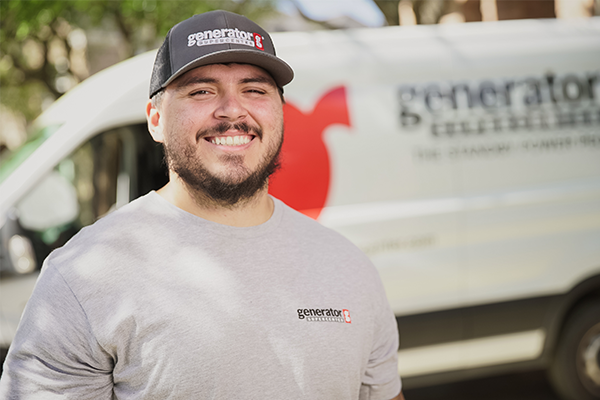In Massachusetts, residents are no strangers to the whims of Mother Nature. The state’s geographic location lends itself to unpredictable weather patterns and natural disasters, ranging from heavy snowfalls in the winter to the occasional brush with hurricanes during the warmer months. Such events are notorious for causing grid power to fail, which can last from a few hours to several days, disrupting daily life. The significance of a backup power source from a standby generator during these times cannot be overstated, especially during the frigid winter months.
Home generators have many benefits. Here are a few to consider when shopping for home standby generators:
Choosing the right size and location for your whole home generator is critical. The size will depend on the power requirements of your home, while the location must consider safety and functionality. Installation should comply with local regulations and codes, which can be complex and daunting for homeowners. This is where the expertise of the licensed electrician team from Generator Supercenter of Peabody becomes invaluable. Their experienced team can navigate these requirements and ensure your backup generator is installed safely, efficiently, and compliant with local laws. The following are essential factors to consider when choosing the best generator for your home:
Begin with an energy audit to determine the wattage requirements of your home. Factor in all critical appliances and systems you need to run during an outage to calculate the generator power, ensuring the generator you choose can handle your specific power needs.
Familiarize yourself with local zoning laws and setback requirements. Your generator should be installed in compliance with these rules to avoid legal issues and ensure safety. Placement typically requires a certain distance from your home and property line.
Standby generators can be noisy when operating. When deciding where to place a generator outdoors, consider the impact on your living space and neighbors. Strategic placement, with noise-reducing barriers or enclosures, can minimize disturbances.
The chosen location must be easily accessible for regular maintenance and repairs. Ensure there’s ample space for technicians to access the unit safely and efficiently, keeping it in optimal working condition.
Place the generator where it won’t pose a risk of carbon monoxide entering the home and where flooding is unlikely. Generators have automatic co-shutoff and sophisticated exhaust systems, protecting homeowners from carbon monoxide poisoning.

When selecting a fuel source for your generator, several options are available, each with advantages. Natural gas, propane, and diesel are the most common fuel choices, with natural gas and propane being famous for their clean burning and diesel for their energy density and storage longevity. Generac home standby generators, renowned for their reliability and versatility, offer models that can operate on natural gas, propane, and diesel, catering to the diverse needs of homeowners. Generac inverter generators also provide clean power, fuel efficiency, and quiet operation.
Generator Supercenter of Peabody can guide you through these fuel source options to find a Generac generator that aligns with your preferences and fuel availability.
Evaluate the availability of various fuels in your area, including natural gas, propane, and diesel. Consider the logistics of fuel delivery and storage, particularly in times of emergency when fuel may be harder to procure. Propane and diesel can be stored onsite, which is beneficial if local fuel services are disrupted during a power outage.
Analyze the efficiency and operational costs associated with each fuel type. Natural gas generators are often more cost-effective for continuous use due to the lower price of natural gas. In contrast, propane and diesel generators may offer higher energy content per gallon, which could be more economical for less frequent use or when more power is required.
Match the generator size with the appropriate fuel type to optimize performance. Larger generators may be more efficient on fuels like diesel. In contrast, smaller to mid-sized generators often perform well with natural gas or propane tanks, offering a cleaner burn and easier maintenance.
Don’t wait for the next power outage to leave you in the dark. Secure your home and peace of mind with a whole home generator from Generator Supercenter of Peabody. Whether you’re safeguarding against Massachusetts’ unpredictable weather or ensuring your family’s comfort and safety, our team is ready to help you understand what to look for when shopping for a whole home generator. Click the button below to schedule a free in-home assessment, and let us empower you with a reliable, efficient, and perfectly sized whole-home generator. Act now and join the ranks of power-protected homes in Massachusetts!
Book Your Free In Home Consolation Instantly!
